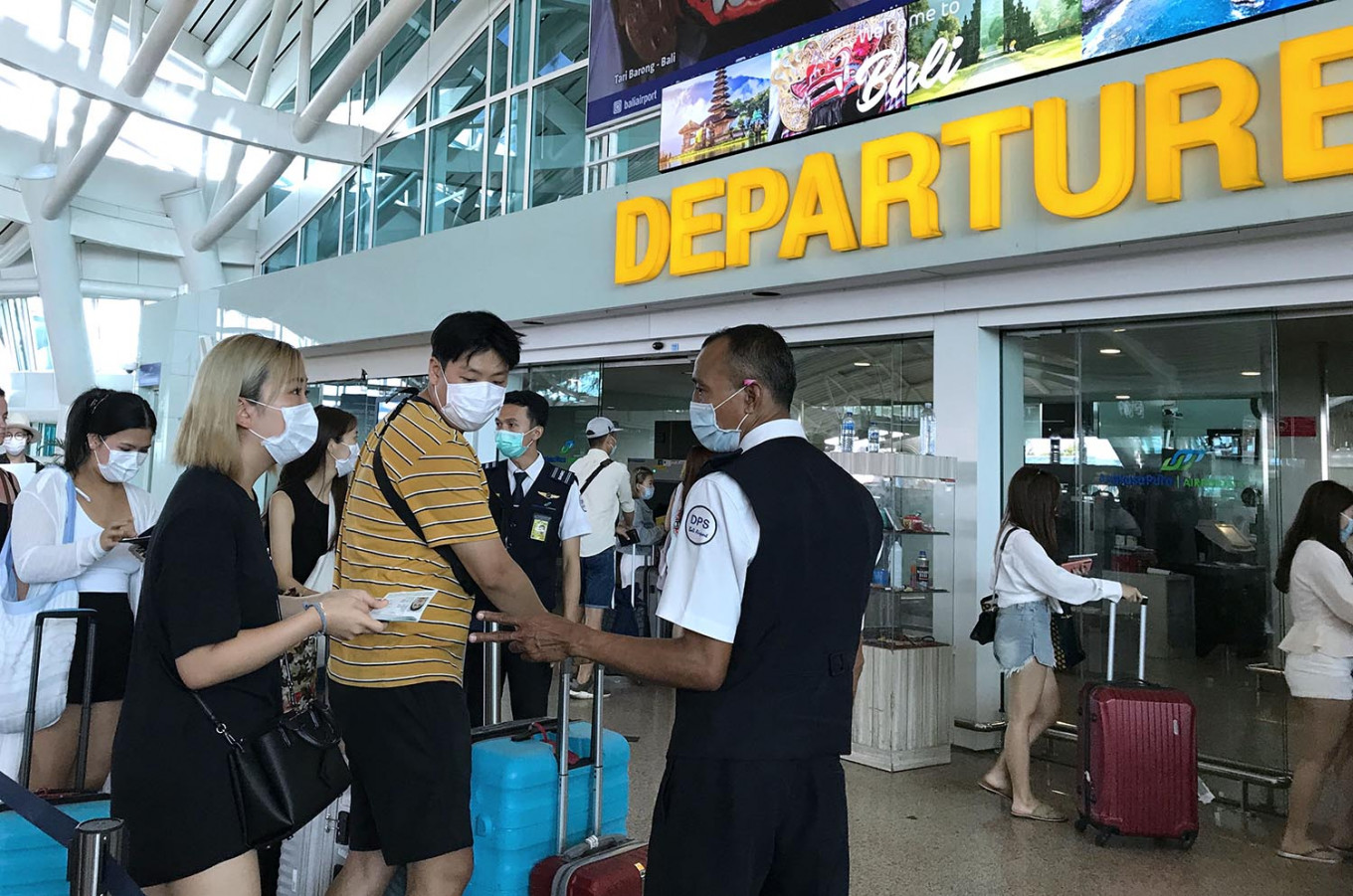Popular Reads
Top Results
Can't find what you're looking for?
View all search resultsPopular Reads
Top Results
Can't find what you're looking for?
View all search resultsViral economy downside
Uncertainties surrounding vaccines will continue to add downside risks to the global economy, which is facing challenges from climate change, US economic stagnation, public discontent around the world and conflicts in the Middle East.
Change text size
Gift Premium Articles
to Anyone
T
he global economy kicked off 2020 with a little more hope from the signing of a first-phase trade deal between the United States and China, the two world’s largest economies and whose trade feud has roiled countries worldwide.
But weeks into the start of the year, the rapidly spreading 2019 novel coronavirus (2019-nCoV) outbreak that began in Wuhan, China, has sent shockwaves throughout the world economy. The death toll has risen to 492 — all but two in China — and cases reported reached nearly 25,000 as of Wednesday.
From mask hoarders to stock sell-offs, the instant reaction has been panic. Nearly US$400 billion was wiped off the benchmark Shanghai stock market, triggering China’s central bank to announce a $173 billion injection to boost liquidity in the banking system and currency market. Stock markets, especially in Asia, saw red, including the Jakarta Composite Index, which lost nearly 6 percent from Jan. 17, with an around Rp 3 trillion ($219.14 million) net sell from foreign investors.
Read also: Coronavirus can depress Indonesian economy by 0.29 percent: Minister
Factories are closing in China and mutiple countries including Indonesia have issued travel warnings to and from the mainland. Economists are estimating that the coronavirus outbreak will slash 1 percentage point from China’s economic growth, which at 6.1 percent in 2019 was already the lowest in almost three decades.
The World Bank has estimated that every 1 percentage point of drop in China’s growth will cut Indonesia’s growth by 0.3 percentage point. Southeast Asia’s largest economy expanded by 5.02 percent in 2019, the weakest in four years, Statistics Indonesia announced on Wednesday. Coordinating Economic Minister Airlangga Hartarto has said that Indonesia’s economic growth could lose 0.1 to 0.29 percentage points because of the new coronavirus.
Uncertainties surrounding vaccines will continue to add downside risks to the global economy, which is facing challenges from climate change, US economic stagnation, public discontent around the world and conflicts in the Middle East.
Economic reform is imminent for Indonesia’s survival through 2020. With trade under extreme pressure from global economic risks, the government will have to rely on investment, consumer spending and government spending. After all, the latest data shows that consumer spending contributes 56 percent to gross domestic product, followed by investment at 32 percent. Government spending’s contribution, meanwhile, continued to decline to 8.75 percent in 2019.
Read also: Indonesian tourism could lose US$4 million amid coronavirus outbreak: Wishnutama
The omnibus bills can serve as avenues to boost investment, increase jobs and spur economic growth. However, consulting relevant stakeholders and public scrutiny must be ensured to achieve well-targeted policy-making. Beyond that, economic diversification, providing legal certainty for investors and cutting red tape to ease doing business needs to be prioritized.
Opening up is key at uncertain times, and the last thing the government should do is restrict unnecessary economic activities. Therefore, vigilance is important in the handling of the new coronavirus, but over-restriction should be avoided.
The recent temporary ban on travel and live animal trade with China is appreciated. But beyond that, especially limiting imports of processed foods, beverages and other products, would simply be a case of overreaction and will do more harm than good to the Indonesian economy.










